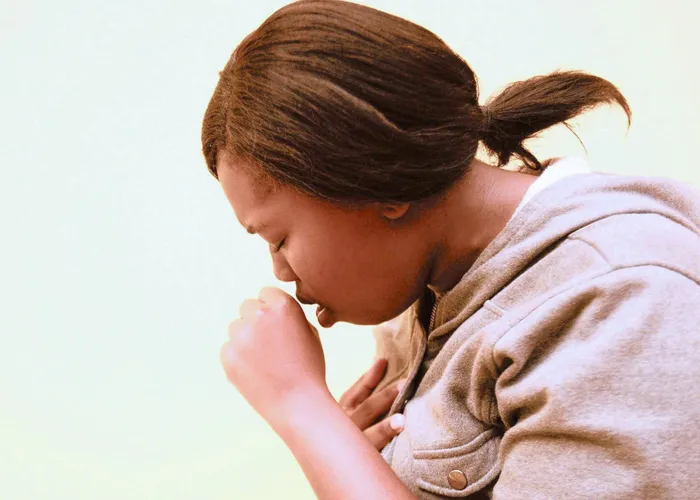
Whooping cough can lead to pneumonia and other potentially life-threatening complications. Parents are warned to remain vigilant as some symptoms can pose genuine concerns for children.
Image: Patrick Mtolo, African News Agency (ANA)
As the unmistakable high-pitched gasp associated with pertussis, commonly known as ‘whooping cough’, continues to echo in South Africa, a slight increase in cases has raised significant concern among health professionals. The National Institute for Communicable Diseases (NICD) has reported that while pertussis numbers remain relatively low in 2025, the highly contagious nature of this respiratory infection demands vigilant action.
“Pertussis is a highly contagious respiratory infection, and most people recover after a prolonged period of coughing, but for some it can lead to pneumonia and other potentially life-threatening complications – especially for young children, pregnant women, and older people,” explains Dr Rubena Sathar, a general practitioner (GP) at Netcare Medicross Cape Road.
The onset of pertussis is often insidious. Initial symptoms can be mistaken for a common cold, with mild respiratory issues persisting for the first week or two. However, the true danger lurks just around the corner. During this time, the disease rapidly spreads through droplets released when an infected person coughs or sneezes.
“By the second or third week, the cough escalates dramatically, leading to those infamous whooping cough spasms. Although fever may be absent, the bacterial infection causes intense coughing spells that can lead to vomiting and disrupt sleep significantly,” Dr Sathar warns.
Parents should remain vigilant. The prospect of weight loss or sleep apnoea — obstructed breathing that interferes with sleep — can emerge as genuine concerns for children suffering from whooping cough. It is crucial for parents to monitor these symptoms closely and consult a healthcare professional if they arise.
Recovery from pertussis is a protracted process. Dr Sathar notes that although many individuals experience symptom improvement within four to six weeks, the cough may linger for up to 100 days, a hallmark of this challenging respiratory illness. Complications can also arise, turning what appears to be a minor ailment into a serious health risk.
To mitigate these risks, vaccination remains the most effective defence against pertussis. The NICD has outlined a comprehensive vaccination schedule for South Africa, beginning with three doses given to babies at six, 10, and 14 weeks of age. A fourth dose is administered as a first booster at 18 months, with additional boosters recommended at six and 12 years.
“Immunity wanes over time, with protection lasting approximately five to six years after booster doses,” Dr Sathar adds. For those aged seven and above who are in contact with vulnerable populations, such as newborns or older adults, a Tdap-IPV booster is recommended if it has been over five years since their last vaccination.
Importantly, pregnant women are advised to receive the acellular pertussis-containing vaccine, as this helps protect their infants in the critical first weeks of life before they can be immunised themselves.
Early intervention is key. Dr Sathar encourages anyone exhibiting respiratory symptoms, particularly those who suspect pertussis, to seek medical attention promptly. “Instead of dealing with complications later, visit your local GP early. Testing may be necessary, and self-isolation along with plenty of rest and fluids is essential,” she recommends.
Access to healthcare and vaccination facilities across the country remains robust, with Netcare Medicross GPs available year-round for primary healthcare needs, including booster vaccinations for pertussis. Dr Sathar urges parents and individuals to remain proactive. “If you haven’t had a pertussis booster in the last 10 years, make an appointment to ensure your family’s protection.”
In a climate rife with vaccine misinformation, Dr Sathar emphasises consulting medical professionals to dispel misconceptions and make informed health decisions. “Vaccines are safe; it’s crucial to talk about any concerns with a healthcare provider rather than relying on social media for information.”
IOS